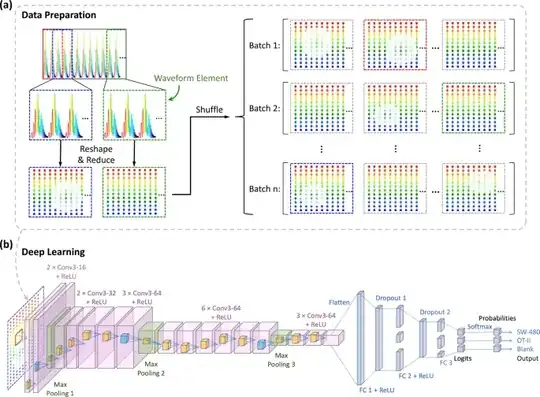In simple terms, any AI system will consist of three elements:
- Code, written by humans, that defines the mathematical model
- The mathematical model itself, as it exists within the computer
- The model weights, millions or billions of parameters that are tuned by the training process
As far as intellectual property law is concerned, I think I know how the first two would be handled:
The code is a creative expression by the coders, and so copyright would apply.
The mathematical model is defined by the code, but can be expressed in other ways. Here is a diagram of the structure of such a model, that along with the paper it is in should allow one to recreate the model without creating a derivative work of the actual code that was used to create it in the first place. I THINK patent law not copyright would apply to this element.

The weights I am not sure of. These have been generated without any human creativity, the model has been run against large amounts of data and the weights built up. This is however a very expensive process, costing lots of computer time with means electricity. Would there be any intellectual property law that applies to these weights?
This is particularly relevant now as the 65B weights for Facebook LLAMA have leaked. My understanding is that Meta has released the code under a non-permissive no commercial use licence, and only released the trained weights for much smaller model. This leak allows anyone technically to run the full model (if they have a $20k graphics card, or do it "on the cloud"). However could they do it legally? Assuming they could recreate the model without creating a derivative work (perhaps using clean room techniques ) could someone use this model without restrictions?